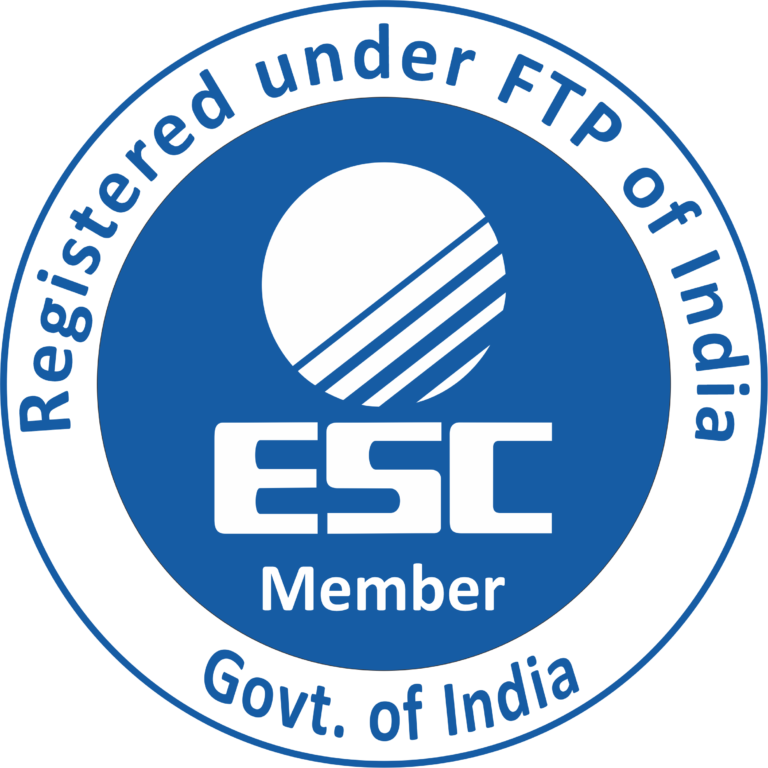What Does an Angular Developer Do? A Quick Overview

Angular, an advanced front-end framework created by Google, has grown into a cornerstone of modern web development, transforming the way developers create dynamic, interactive, and scalable applications for the web. With its deep functioning, quick performance, and major community support, Angular has become known as a top choice to create complex and feature-rich online apps.
If you’re thinking about a career in web development or want to hire an Angular developer for your project, this comprehensive guide will help you understand the role, responsibilities, and skills needed. From developing and building user interfaces to enhancing application performance and collaborating with teams, Angular developers play a vital role in driving innovation and offering great web experiences. Let’s look deeply at the most important skills Angular developers must possess for success.
What is Angular?
Angular, an effective front-end framework, helps developers to create dynamic, single-page web apps. Angular significantly enhances code readability, maintainability, and scale by leveraging TypeScript, an effective superset of JavaScript. The main features of Angular include:
- Two-way data binding: Two-way data binding seamlessly synchronizes changes between the model (data) and the view (UI), avoiding the need for manual updates and streamlining data administration.
- Dependency: Dependency injection is a method for managing dependencies between parts that promotes code flexibility, testability, and reusability.
- Component-based architecture: Component-based layout promotes a modular strategy to developing UI components, making code more structured, easily maintained, and manageable.
- Angular CLI: Angular CLI is a strong command-line interface that simplifies development activities like project creation, component generation, and application construction, saving developers time and effort.
- Routing: Routing allows smooth movement within a web application, enabling users to switch among different pages or views based on user inputs or URL changes.
- Forms: Provides a solid basis for creating complex forms, including integrated validation criteria, data enforceable, and customizability, assuring a seamless user experience.
- Directives: Directives expand the functionality of HTML elements by specifying custom attributes, enabling developers to construct repeatable and dynamic user interface components.
Responsibilities of an Angular Developer:
- Designing and developing interfaces: Designing and developing interfaces for users include creating attractive, natural, and responsive interfaces that conform to design criteria, leading to an identical user experience throughout devices and browsers.
- Writing clean, efficient, and reusable code: Writing clean, efficient, and reusable code: Utilizing best practices, coding norms, and style guidelines to create excellent, maintainable, and scalable code.
- Integrating with Back-end Services: To effectively acquire and show data, connect the frontend to backend APIs via RESTful or GraphQL protocols.
- Improving application performance: Using methods like code minification, tree shaking, lazy loading, and cache to guarantee that the application loads quickly and works well over a variety of devices and networks.
- Collaborating with team members: Collaborating with team members involves interacting effectively with designers, back-end developers, and other project members to ensure project success and excellent outcomes.
- Managing project schedules and deliverables: Successfully managing project timeframes, describing realistic goals, and prioritizing work to ensure project outputs arrive within specified dates.
- Collaborating with team members: Collaborating with team members includes interacting successfully with designers, the back end developers, and various other project members to guarantee project success and excellent outcomes.
- Managing project schedules and deliverables: Properly managing project timeframes, describing realistic goals, and prioritizing work to ensure project outputs arrive within specified dates.
- Skills Required to Become an Angular Developer To succeed as an Angular developer, one must have an in-depth awareness of web development fundamentals as well as specific Angular knowledge.
Core Technical Skills:

- Proficiency in HTML, CSS, and JavaScript: Knowing these fundamental web technologies is essential.
- Expertise in TypeScript: TypeScript expertise is required since Angular was created with it.
- Knowledge about Angular CLI: The Angular CLI is a command-line interface which makes development activities easier.
- Knowledge of RESTful APIs: Knowing how to interface with back-end APIs is vital. Third-party library experience: Knowing common libraries like RxJS and Angular Material may prove useful.
Additional skills:
- Problem-solving and troubleshooting: the ability to identify and address problems quickly.
- Web performance optimization: Learning how to increase application speed and responsiveness.
- Communication and collaboration: Effectively working with creators, back-end scientists, and other team members.
- Version Control: Version control entails using Git or other systems for version control to handle code changes and interact with others.
- Testing frameworks: Expertise with testing frameworks such as Jasmine and Karma to develop unit and end-to-end tests.
The Daily Responsibilities of an Angular Developer
When you think about responsibilities and what does an Angular developer do, here is a breakdown of their key tasks: developing dynamic user interfaces, optimizing application performance, debugging, and collaborating with cross-functional teams. Skills required include proficiency in Angular, TypeScript, HTML, CSS, RxJS, and version control systems, along with strong problem-solving and communication abilities.
- Designing and developing interfaces for users include creating visually appealing and simple interfaces that meet with design standards.
- Writing clean, efficient, and reusable code: Using guidelines and coding standards to guarantee code quality and maintainability.
- Integrating with Back-end Services: Connecting the front-end and back-end APIs to obtain and indicate data.
- Optimizing application performance means making sure the program loads quickly and operates well on a range of devices and browsers.
- Testing and debugging: finding and fixing bugs to guarantee that the program works properly.
- Keeping up with Angular advancements: Keeping up with the most recent Angular versions and best practices.
- Collaborating with teammates: Working together with designers, back-end developers, and other team members to produce superior goods.
Why Businesses Need Angular Developers
Angular provides multiple advantages to groups, making it a key instrument for developing scalable and high-performance online applications and that’s exactly what does an Angular Developer do:
- Scalability: Angular's component-based architecture and fast data binding techniques allows it to handle complicated and large-scale applications, ensuring that the application can grow and adapt to changing requirements without compromising performance or maintainability.
- Performance: Angular's effective rendering and change detection algorithms help deliver exceptional performance, resulting in less load times, smoother user interactions, and improved user experience.
- Rich feature set: Angular has a number of built-in features and tools, like routing, shapes, dependency injection, and orders, which reduces development time and effort and enables developers to build feature-rich applications more effectively.
- Community and ecosystem: Angular is surrounded by a big and active community which offers a plethora of tools, libraries, and courses for developers of all skill levels. This active community promotes cooperation, information sharing, and problem solving, every one of which help to shape and strengthen the Angular framework.
- Cross-platform compatibility: Angular applications can be delivered on a number of platforms, including internet browsers, mobile devices, and desktop programs, resulting in an identical user experience across devices and environments.
- Enterprise-grade features: Angular provides critical features like safety, accessibility, and globalization, making it ideal for enterprise-level applications that require strong security measures, adherence to accessibility standards, and support for numerous languages and locations.
How to Hire an Angular Developer (For Employers)
To hire an Angular developer, look for candidates with strong Angular, TypeScript, and UI development skills, alongside experience in building scalable web applications.

- Assess experience and skills: Look for applicants that have shown their ability to design complicated and well-structured Angular apps. Assess their knowledge of basic Angular concepts such as parts, modules, offerings, and directives, in addition to their ability with TypeScript and the Angular CLI.
- Review the portfolio: Examine the candidate's portfolio to figure out their ability to develop visually beautiful, functional, and responsive Angular apps. Look for projects that demonstrate their ability to develop user interfaces, integrate with back-end systems, and improve application performance.
- Evaluate communication and cooperation abilities: Because Angular development often calls for collaboration with other team members, consider the candidate's communication skills and ability to function well in a team setting. Look for those who can work well together, communicate effectively, and add positively to the project's success.
- Consider these work options: Determine the most suitable hiring choice for your project depending on its size, duration, and budget. In-house recruiting provides long-term stability and control, whilst freelancers give flexibility and cost-effectiveness. Staffing firms can help you find skilled individuals quickly and efficiently.
- Consider these work options: Determine the most suitable hiring choice for your project depending on its size, duration, and budget. In-house recruiting provides long-term stability and control, whilst freelancers give flexibility and cost-effectiveness. Staffing firms can help you find skilled individuals quickly and efficiently.
- Conduct technical interviews: Conduct technical interviews to find out the candidate's technical talents and problem-solving ability. Ask about Angular principles, coding problems and your own experience with certain Angular features and frameworks. Evaluate their abilities to think critically, solve problems, and create clean, efficient code.
- Conduct technical interviews: Conduct technical interviews to find out the candidate's technical talents and problem-solving ability. Ask about Angular principles, coding problems and your own experience with certain Angular features and frameworks. Evaluate their abilities to think critically, solve problems, and create clean, efficient code.
- Evaluate cultural fit: Make sure that the candidate shares your company's values, workplace atmosphere, and team dynamics. Analyze their conduct, communication style, and ability to fit in effortlessly with your current team. Someone who shares your company's values and collaborates effectively with others is more likely to become an effective and long-term team member.
How to Become an Angular Developer (For Aspiring Developers)
If you want to become an Angular developer, learn Angular fundamentals, TypeScript, and responsive UI design. Follow developments and best practices like clean code, performance optimization, and staying updated with new features.
- Learn the basics of web programming: Begin by learning HTML, CSS, and JavaScript, which are the basic building blocks of online applications. Understand how to employ JavaScript to create, style, and interact with web pages.
- Study TypeScript: Discover the basic principles of TypeScript, a JavaScript superset that enhances type safety, code framework, and maintenance. TypeScript is required for using Angular and developing robust, scalable apps.
- Learn Angular's key concepts: Learn about Angular's necessary ideas, like components, modules, services, orders, and data binding. Learn how these ideas mix to create Angular apps.
- Build projects: Improve your abilities through building Angular applications from scratch. Begin with simple projects and gradually expand their complexity as you acquire expertise. This hands-on practice will help you improve your comprehension of Angular ideas while enhancing your problem-solving abilities.
- Consider certifications and trainings: Consider certificates and training: Look into online classes, instructions, and certifications to improve your knowledge and abilities
- Network with other developers: You can meet other Angular developers through social media forums, meetings, and conferences. Joining these groups will help you to learn from others, give your experience, and keep up with the latest developments and best practices.
- Contribute to open-source projects: Contribute to open-source Angular projects for hands-on experience, show your abilities, and work with other engineers. Contributing to open-source projects can also help you build a reputation within the Angular community.
- Keep up with Angular advancements: Since Angular is continually changing, it's critical to keep current with the newest versions, features, and best practices. To remain up to date, check out the Angular official website, documentation, and community resources.
Common Challenges for Angular Developers
Even experienced Angular developers may face challenges and after knowing what does an Angular Developer do here are some common hurdles include:
- Debugging massive applications: Discovering and solving issues in large-scale Angular projects can be time-consuming as well
- Performance optimization: Performance optimization includes ensuring that applications run smoothly on different devices and browsers.
- Keeping up with Angular Updates: Keep up with the latest Angular versions and best practices.
- Managing State Management: Properly managing application data in complex environments.
- Working with large codebases: Working with huge codebases involves organizing & navigating massive Angular projects.
To overcome these challenges, it's essential to:
- Continuous learning and improvement: Keep up with Angular's development and best practices.
- Use debugging tools: Use web developer tools and Angular-specific debug tools.
- Focus on performance optimization: Apply ways to enhance app efficiency and responsiveness.
- Use state-management solutions: To properly manage application state, think about using libraries such as NgRx or Redux.
- Divide big codebases into smaller, simpler to handle modules: Organize your code into well-defined components and services.
Conclusion
Angular developers serve an important role in creating modern, flexible online apps. Understanding what an Angular Developer does and the abilities, duties, and problems connected with this occupation helps you to make better decisions, whether you want to be an Angular developer or need to hire one for your project.











